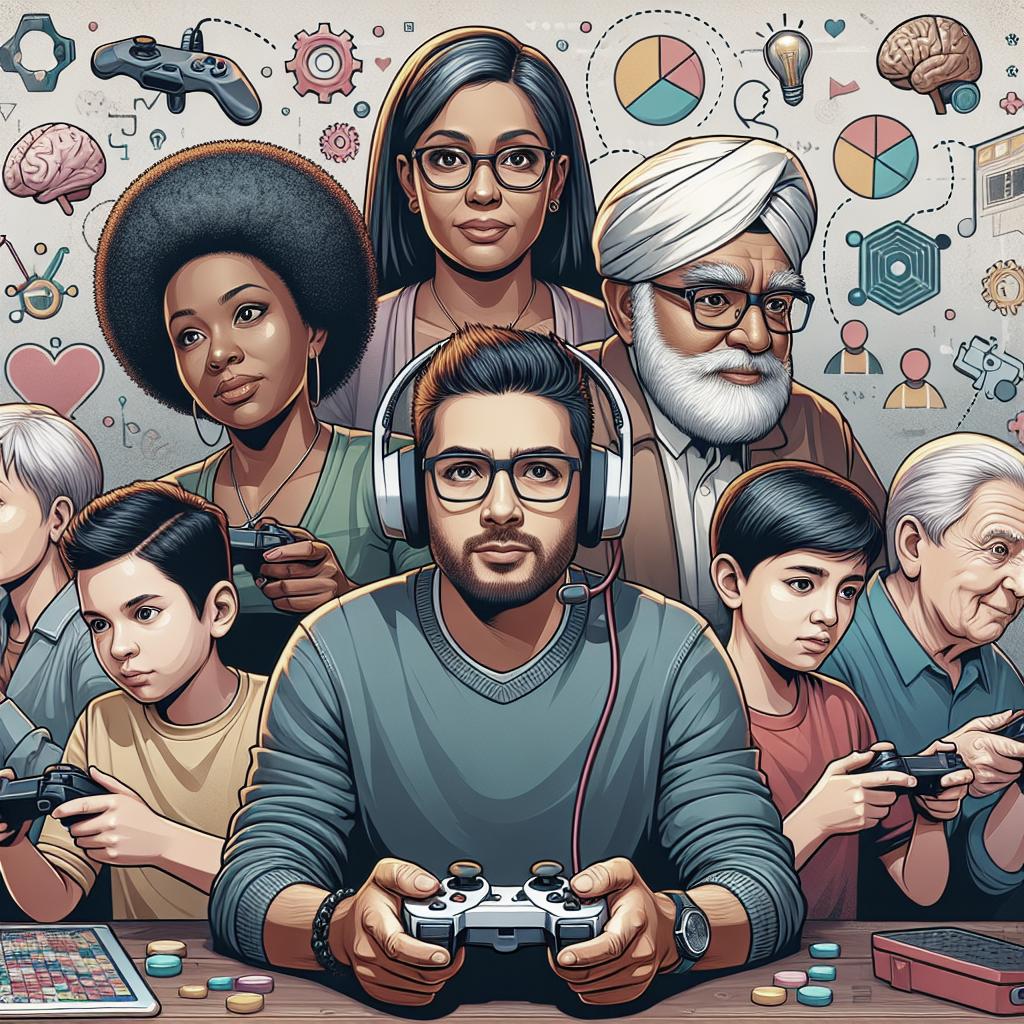<>
Video games often spark a heated debate regarding their value and impact. While some regard them as mere entertainment, a growing body of research suggests that video games can positively influence various cognitive skills. From enhancing memory and multitasking abilities to fostering creativity and problem-solving skills, video games offer an array of cognitive benefits. This blog post delves into these advantages, comparing the short-term and long-term effects, and examines the unique benefits of brain-training games. Additionally, we look at how you can use video games to improve your cognitive skills and assess whether these improvements are tangible. We do not shy away from potential downsides, particularly those associated with violent video games, and finally, we summarize the overall impact of video gaming on cognitive capabilities.
The cognitive benefits of playing video games
Playing video games is often criticized, yet research suggests they can enhance various cognitive functions. For instance, action-packed games require players to make split-second decisions, thereby improving their reflexes and hand-eye coordination. Studies have demonstrated that action gamers display superior attention visual processing and efficiency in multitasking compared to non-gamers. Moreover, strategy-based games can significantly improve problem-solving skills. Games like “Civilization” challenge players to think several steps ahead, fostering strategic planning and resource management. These cognitive exercises are not isolated to gameplay experiences; they transfer into real-world applications, boosting academic and professional performance.
General benefits of playing video games
Beyond cognitive skills, video games have extensive general benefits that contribute to overall well-being. Socially interactive games offer opportunities for collaboration, instilling teamwork and communication skills. Multiplayer online games, for instance, require players to work together to achieve common goals, enhancing their collaborative and social interaction abilities. Furthermore, video games can serve as an effective stress-relief tool. Engaging in immersive gameplay allows players to escape from their daily problems temporarily. This mental break can contribute to reduced anxiety and provide emotional satisfaction.
Short-term vs. long-term benefits of video games
The advantages of playing video games can be categorized into short-term and long-term benefits. Short-term benefits often include immediate improvements in reaction times and problem-solving abilities. Participating in fast-paced games require players to make instantaneous decisions, resulting in quicker reflexes and better short-term memory retention. Conversely, long-term benefits are observed in the sustained enhancement of cognitive skills such as strategic thinking and spatial awareness. Regular gaming sessions can lead to the development and maintenance of these skills, providing lasting benefits that extend beyond the gaming world. These long-term improvements often include better academic performance and sharper intellectual faculties.
The benefits of brain-training games
Brain-training games such as “Lumosity” or “Brain Age” have gained popularity for their true cognitive benefits. These games are specifically designed to improve particular cognitive functions like memory, attention, and processing speed. Structured as challenges or puzzles, they require a high level of concentration, thus sharpening mental faculties. Additionally, brain-training games can be particularly beneficial for older adults. Studies have shown that engaging in these cognitive exercises can help delay the onset of dementia and cognitive decline. By frequently engaging in mentally stimulating activities, seniors can maintain their cognitive health.
Using video games to improve your cognitive skills
Harnessing video games to improve cognitive abilities involves selecting games that target specific skills you wish to develop. Action games for quick decision-making, puzzle games for problem-solving, and strategy games for planning are all effective choices. Carefully selecting games based on their cognitive challenges can maximize the benefits you receive. Combining gaming with other cognitive exercises enhances these benefits further. Practice mindful gaming by taking breaks, reflecting on strategies, and varying the types of games you play. This multifunctional approach ensures that your cognitive skills are honed in a balanced manner.
Testing whether playing video games help you improve
To determine if video games are enhancing your cognitive skills, engage in self-assessment tools before and after a set gaming period. Tools like cognitive tests and brain-training apps can provide measurable data on your cognitive performance. This empirical approach allows you to track progress and adjust gaming habits accordingly. Moreover, it’s valuable to track real-world applications of these skills. Noticeable improvements in tasks such as multi-tasking at work, quicker problem-solving in daily life, or better academic performance can serve as indicators that video games are contributing positively to your cognitive toolkit.
Potential downsides to playing video games
However, playing video games isn’t without its downsides. Excessive gaming can lead to a sedentary lifestyle, resulting in potential physical health issues such as obesity and poor posture. Furthermore, time spent engrossed in video games can detract from other productive activities, leading to imbalances in daily routines. There is also the risk of gaming addiction. Some players may find themselves spending excessive time immersed in virtual worlds, to the detriment of real-world responsibilities. This over-indulgence can lead to a range of social, academic, and professional setbacks.
Potential downsides of violent video games
The controversy surrounding violent video games centers on the potential for increased aggression and desensitization to violence. Critics argue that constant exposure to violent scenarios can lead to aggressive thoughts and behaviors, particularly in younger players. Long-term engagement with violent video games might correlate with a reduced sensitivity to real-world violence. Moreover, these games can distort perceptions of conflict resolution. While violent games might offer immediate gratification, they often teach that aggression and violence are acceptable solutions to problems, which can negatively influence real-life attitudes and behavior.
Summary and conclusions
In essence, video games present a multifaceted impact on cognitive abilities, with numerous benefits ranging from improved reflexes to enhanced problem-solving skills. However, it is essential to balance gaming with other life activities and stay mindful of potential negative consequences, such as addiction or aggression from violent content. Below is a summary table encapsulating the main points discussed. “`
| Aspect | Benefits | Downsides |
|---|---|---|
| Cognitive Skills | Improved reflexes, problem-solving, multitasking | None mentioned |
| General Benefits | Teamwork, stress relief | Sedentary lifestyle risks, addiction |
| Short-term vs Long-term | Immediate reaction time, sustained cognitive benefits | None mentioned |
| Brain-training Games | Improved memory, attention, and processing speed | None mentioned |
| Potential Downsides | Not Applicable | Violence, addiction, social imbalance |
“`
Other articles you may find interesting:
“If you enjoyed this exploration of how video games impact cognitive skills, you might be interested in these related articles: – ‘The Evolution of Video Games and Their Influence on Pop Culture’ – ‘How Technology is Transforming Learning and Education’ – ‘The Future of Esports: Trends and Predictions’ – ‘Integrating Gamification in the Workplace: Benefits and Challenges'”


